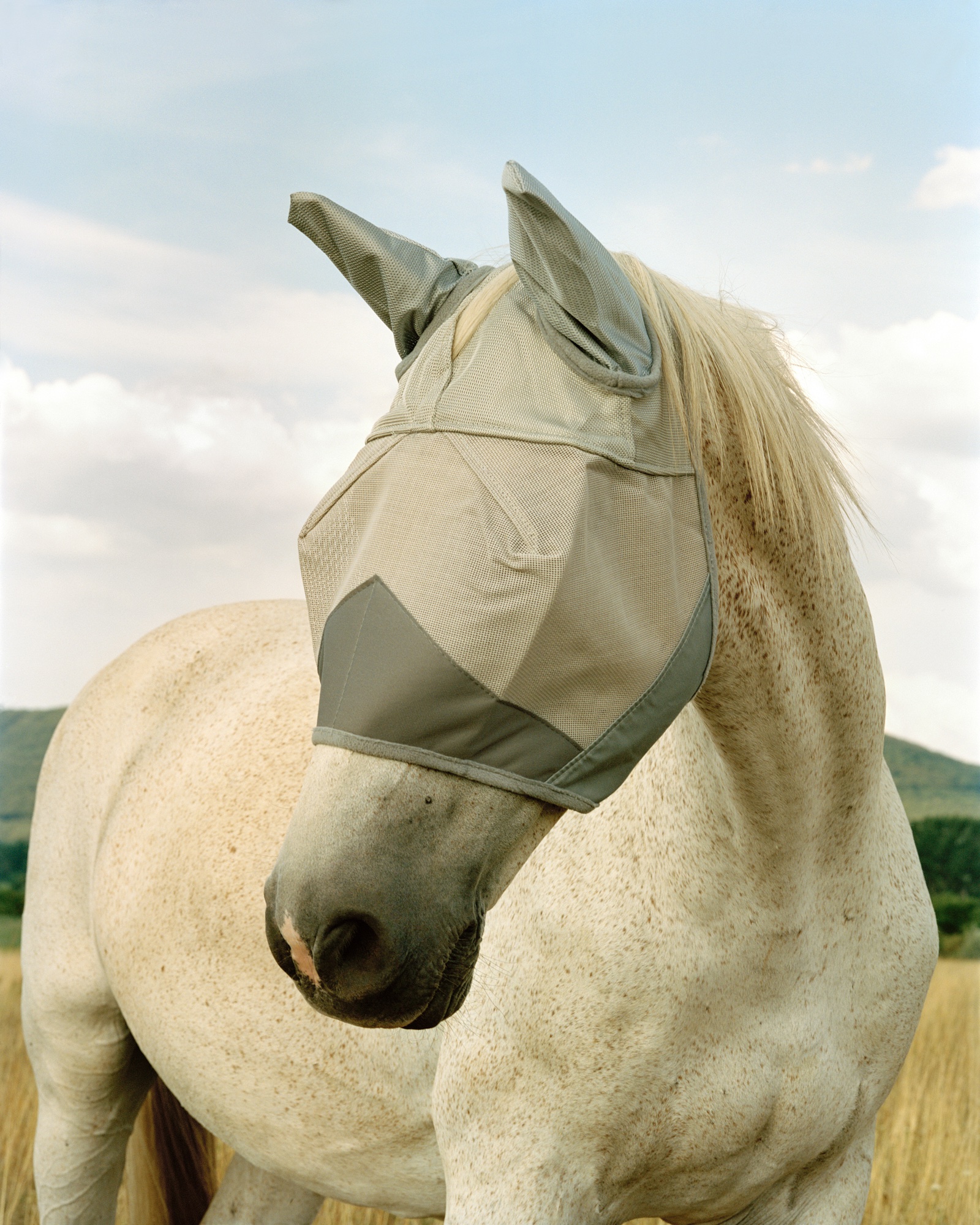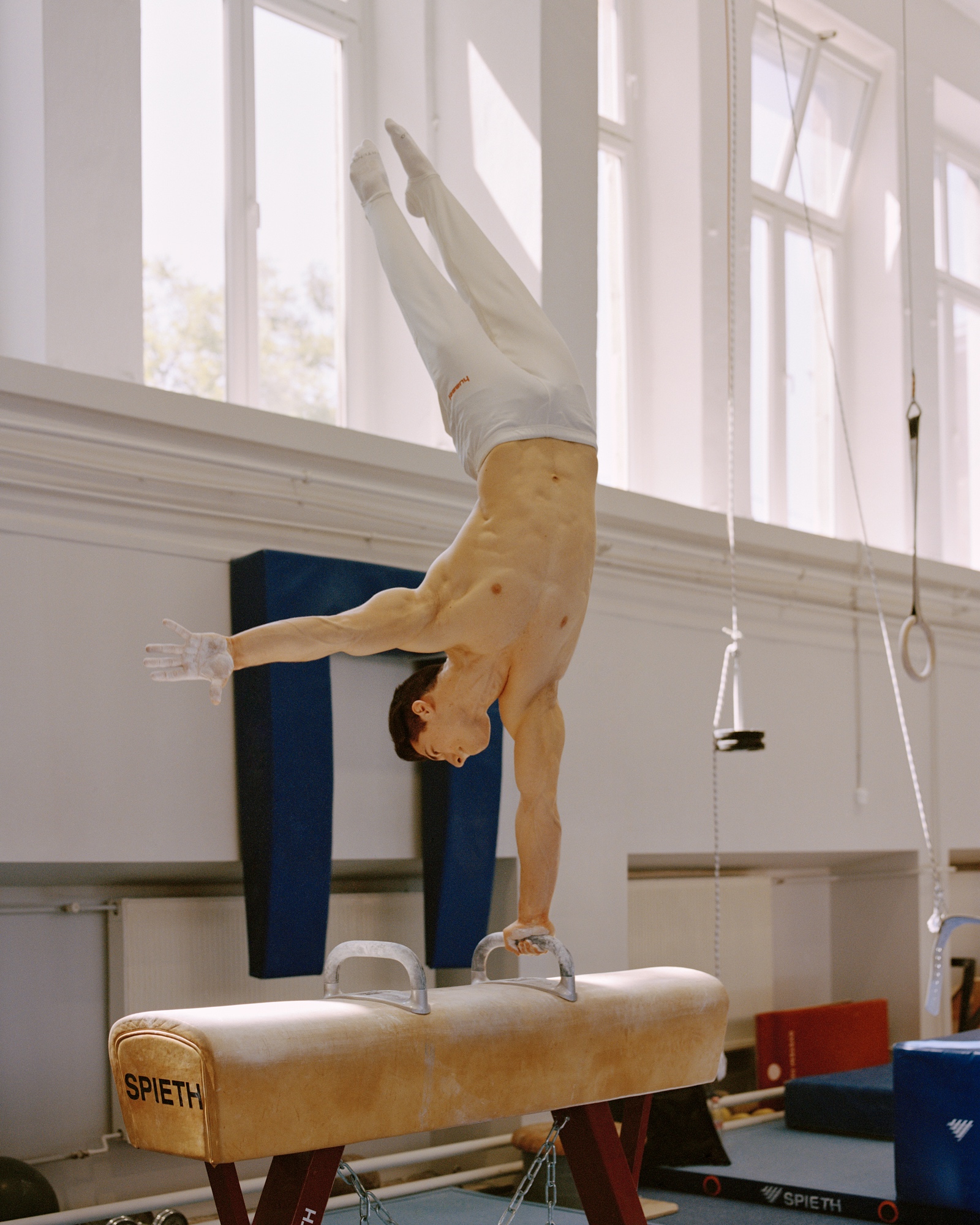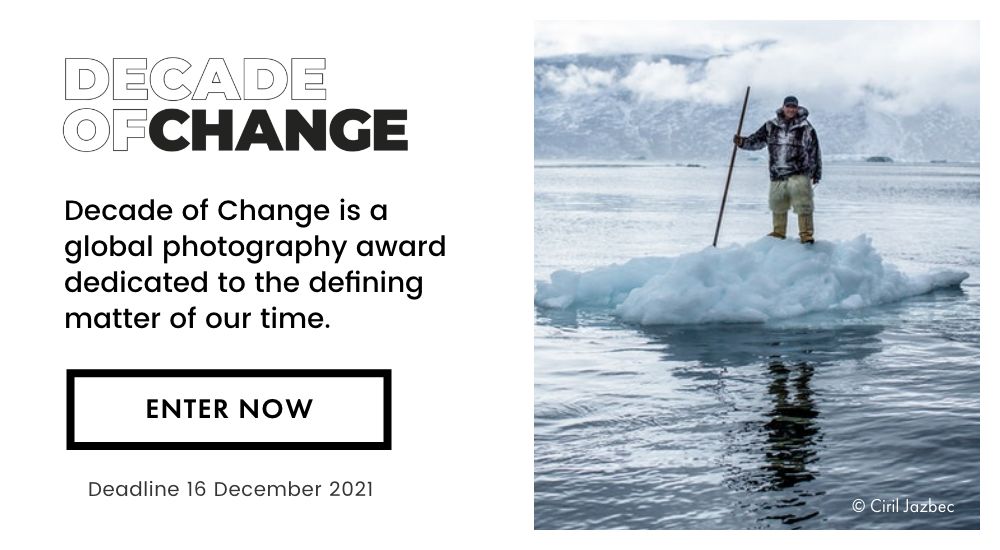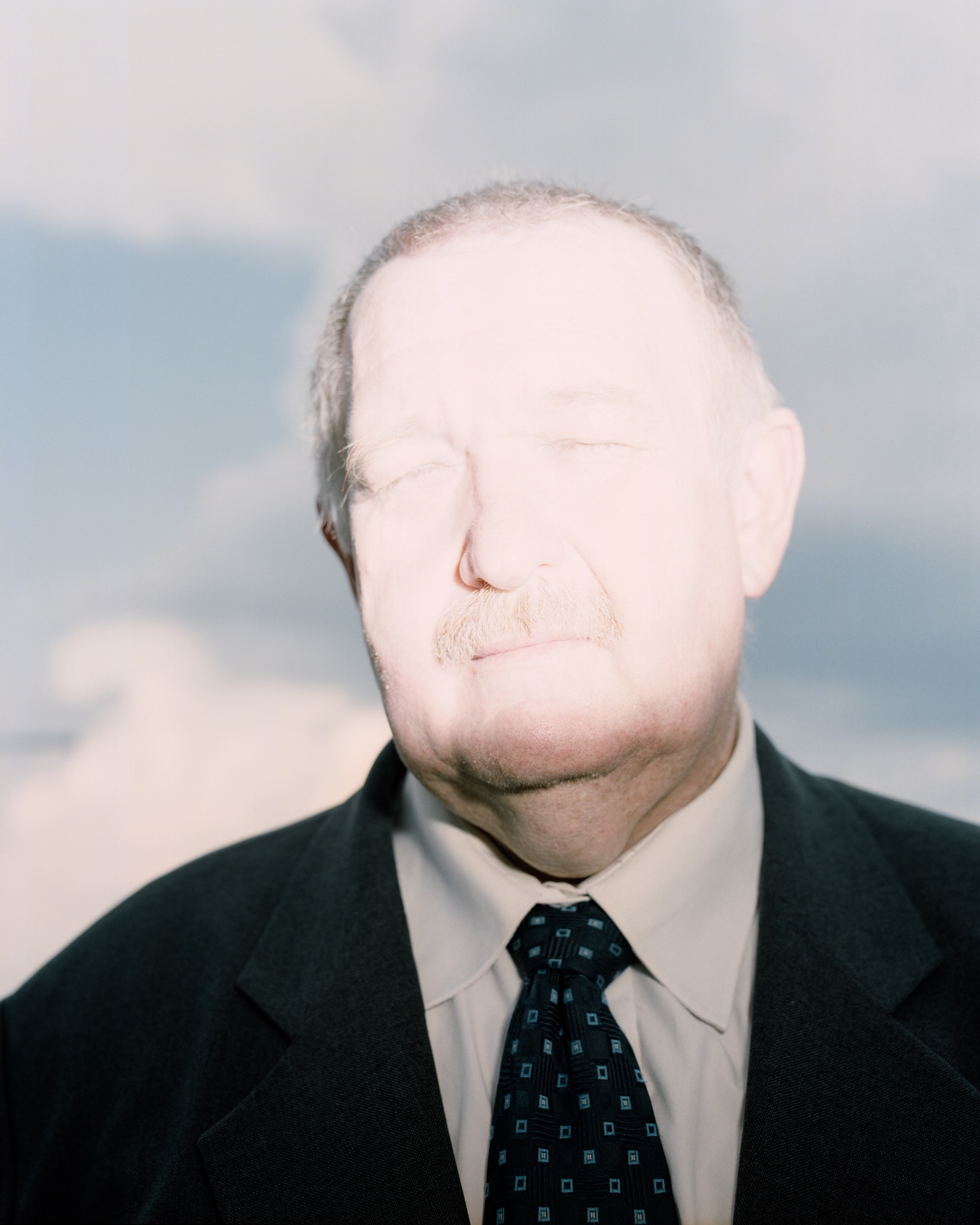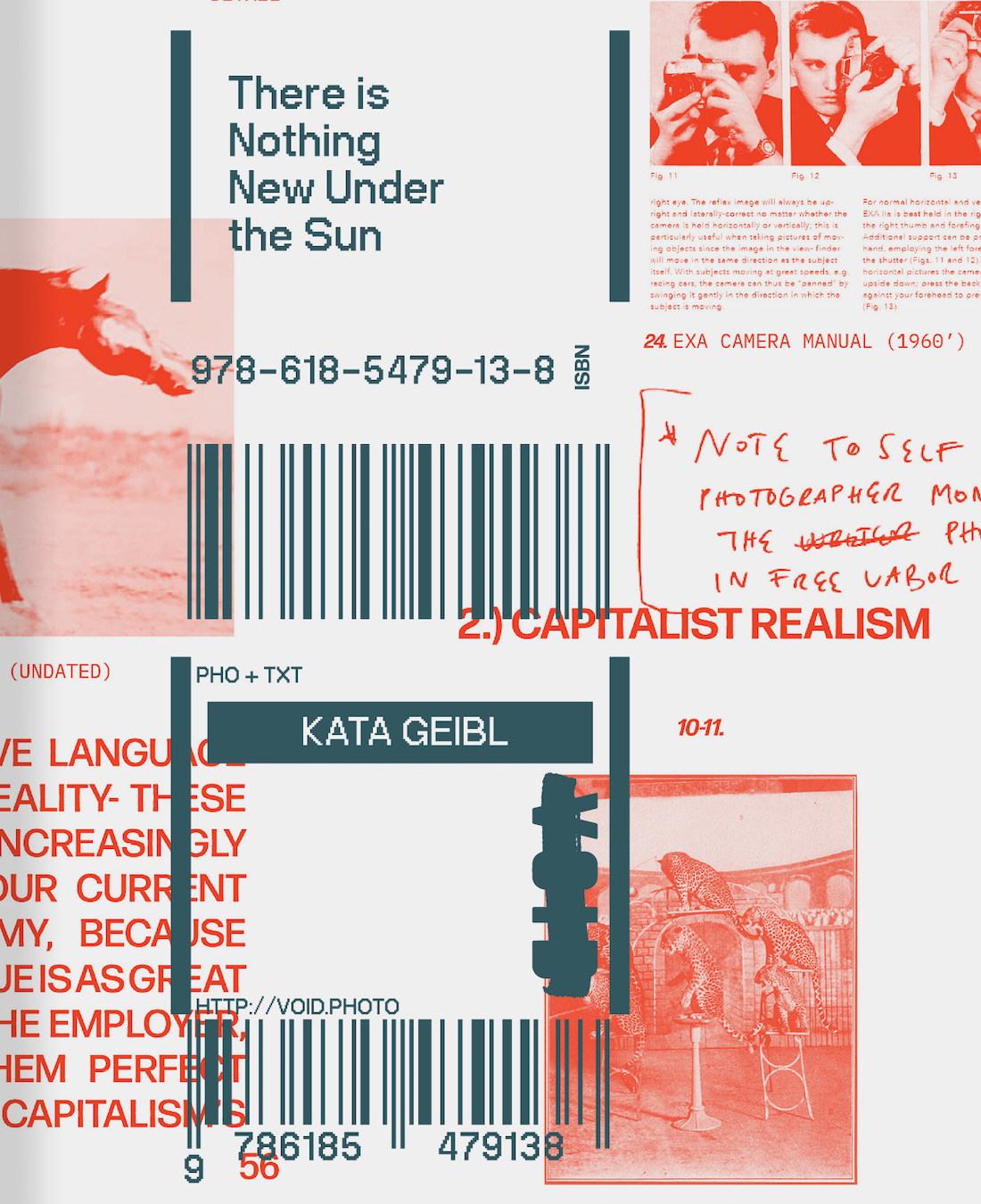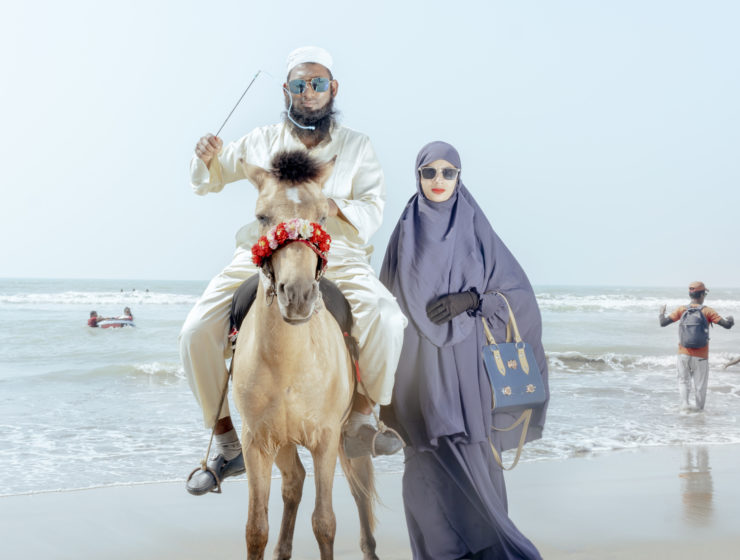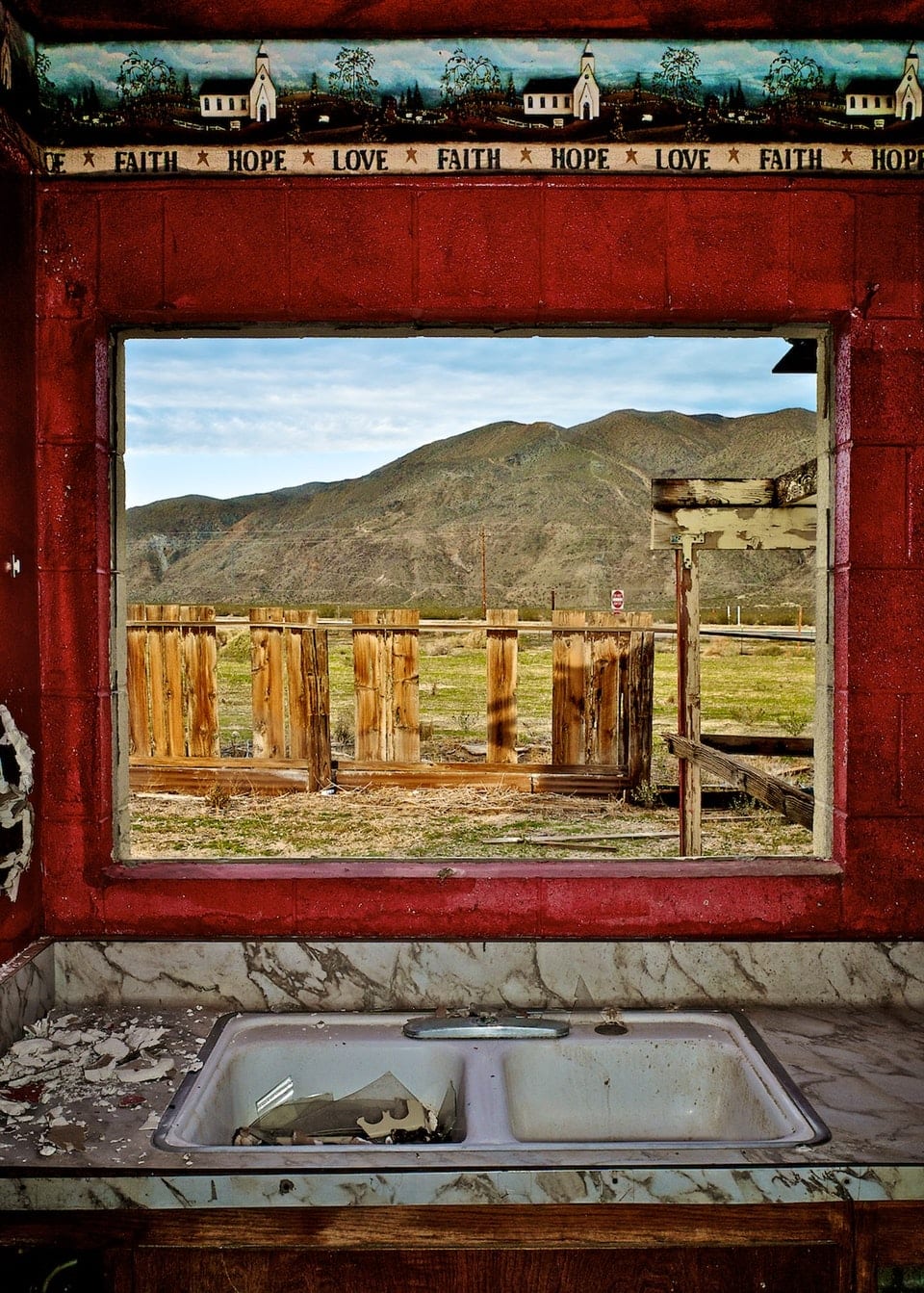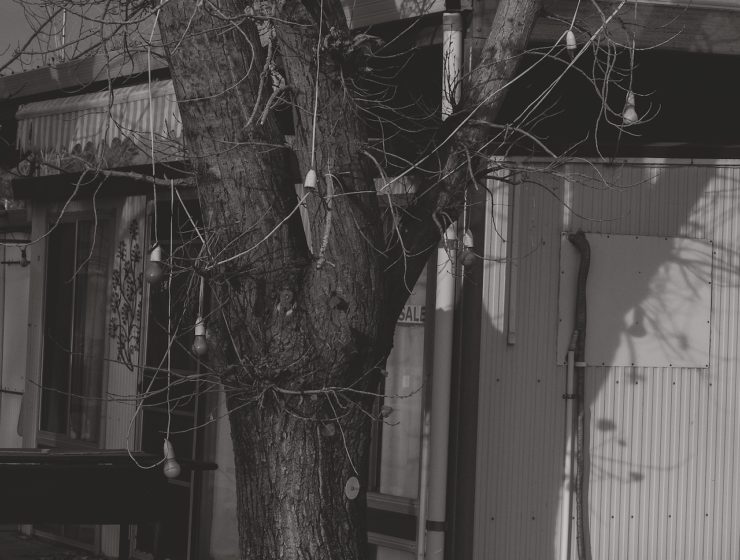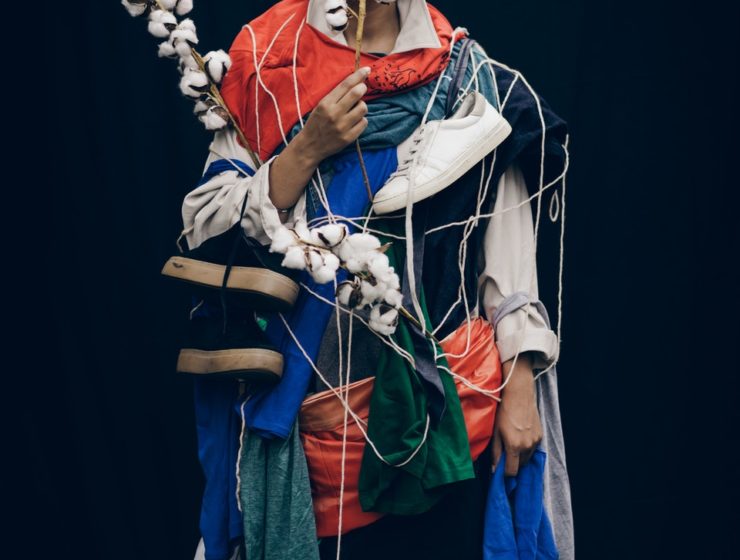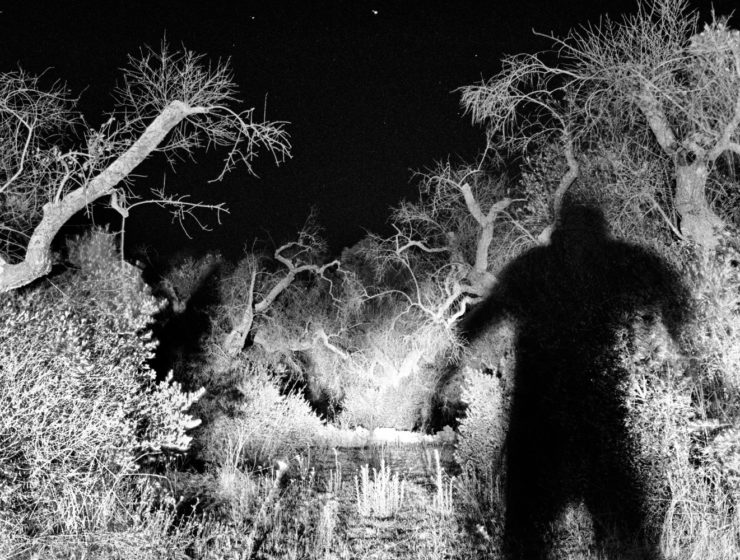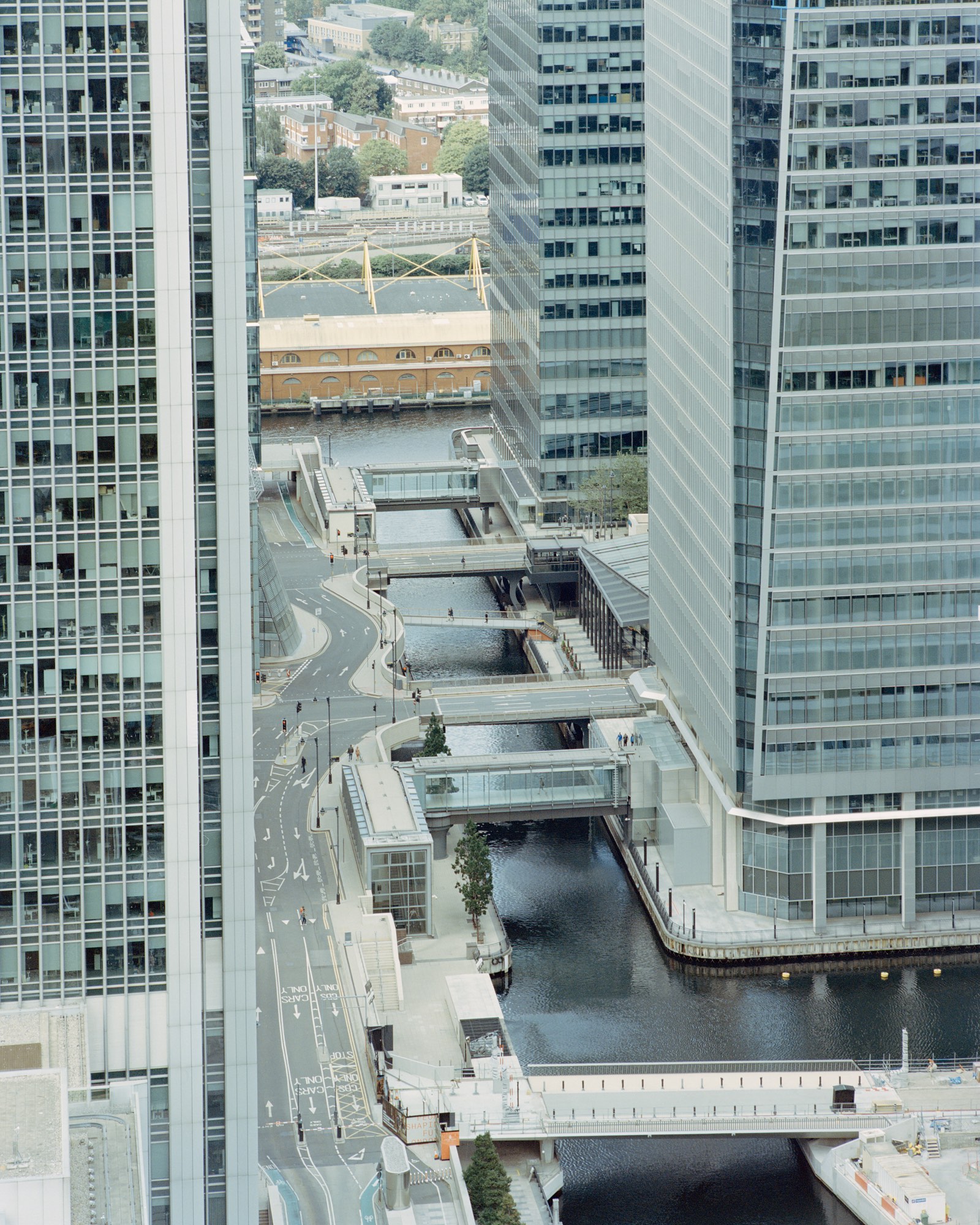As the photographer publishes, There Is Nothing New Under The Sun, in a new book with Void, we revisit the project
A handful of bees, a hooded horse, London’s financial district, athletes; the images in Kata Geibl’s book There Is Nothing New Under the Sun are enigmatic at first, as is the title. But they’re drawn together by their sun-kissed palette and Geibl’s proposition, which is about global capitalism and its hold on our perceptions. The animals are under human control, reconfigured as resources in a worldview that doesn’t acknowledge that they have their own, intrinsic value; the athletes suggest competition, in a system which makes us all winners (or more often losers). London’s Canary Wharf represents finance, meanwhile, but is also a vision of a dystopia wrought from steel and glass. The 21st century is peculiar, but we’re so deeply entrenched we don’t often see it.
“When people think about capitalism they think of consumption mainly, and perhaps money and banks,” explains Geibl. “They almost never think about the ideology that is behind it, that affects everyone’s lives. Almost every image in the book is high-key lightning, backlit, hard light, which gives them a very cinematic look, but also means you can’t escape the feeling that something eerie is happening.”
Those feelings are important to Geibl because she wants her photographs to evoke an emotional response, to hit viewers before conscious thought, just as ideology does. The title of her book suggests something similar, because although it’s an everyday phrase in English, it comes from the Bible – a book whose teachings still underpin Western society, and which explicitly give humans dominion over Earth. Even so, the phrase ‘There is nothing new under the sun’ comes from a passage that suggests humans should have some humility, when faced with a planet so much older than them.
“What has been will be again, what has been done will be done again; there is nothing new under the sun,” reads the text in Ecclesiasticus, which Geibl sends me. “Is there anything of which one can say, ‘Look! This is something new’? It was here already, long ago; it was here before our time.”
Alongside these elements Geibl has added an intriguing text, which combines a much more direct critique of capitalism. She namechecks intellectual heavy weights such as Jean Baudrillard and David Harvey, with her own, very personal recollections of trying to get into art school, or growing up in post-Soviet Hungary. It also includes small, monochrome images, taken from sources such as Alain Robbe-Grillet’s celebrated film Last Year at Marienbad (1961).
The text aims to provide a more direct reading of market economics but also “bring the idea of the ungraspable capitalist state down to the level of personal matter”, says Geibl, who’s keen to suggest how it affects us all. Similarly, the text is presented deliberately roughly, with pages printed sideways, cutting off half-way, or annotated with handwritten scribbles, in a bid to show “the roughness that is going on behind the cinematic images”.
This text also includes Geibl’s experiences of work, both at an early, dead-end job and in an art market in which she has to, for example, bear the cost of making work for photo fairs with no guarantee it will sell. She reflects on her position as a Millennial, born into a world in which “there is no alternative” to neo-liberalism (as Margaret Thatcher put it), but in which secure jobs and the traditional trappings of middle-class life are eluding many young people.
“Employers trade on the persistent myth that when we do what we love, that labour no longer counts as work.”
As Geibl points out, this situation is systemic but it’s couched in terms of individual responsibility; individuals are then urged to find jobs they enjoy, so that they “never work another day of their life”. But this trade-off too often equates to bad pay. “EMPLOYERS TRADE ON THE PERSISTENT MYTH THAT WHEN WE DO SOMETHING WE LOVE, THAT LABOUR NO LONGER COUNTS AS WORK,” states Geibl, putting the caps lock on.
Of course there’s a paradox here, between Geibl’s critique of the market and the fact that she participates in it – that she’s made this book, for example, published by Athens-based outfit Void (though also supported by the EU-backed organisation Futures). Geibl is aware of the contradictions but points out that there really is very little alternative. “It’s a personal struggle of mine, how to be free of the market when at the same time depending on it,” she says.
“Yes, the book is sold as an object and that’s something I talked about with Void quite a lot,” she says. “This cognitive dissonance that we have a ‘product’ that is critical about capitalism but that we have to market, to get it out there and reach as many people as possible. It’s something we are very conscious of, but we hope the design of the book – the humour, the witty self-reflection – means this enigma is out there and self-aware.”

